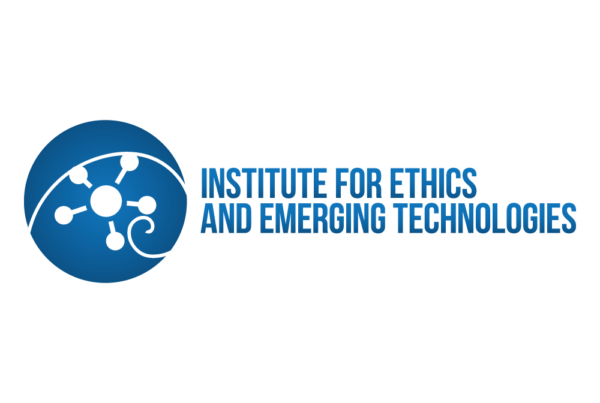2024
|
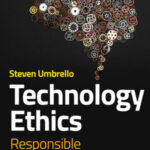 | Umbrello, Steven Technology Ethics: Responsible Innovation and Design Strategies Book Polity, 2024, ISBN: 9781509564040. @book{nokey,
title = {Technology Ethics: Responsible Innovation and Design Strategies},
author = {Umbrello, Steven},
url = {https://www.politybooks.com/bookdetail?book_slug=technology-ethics-responsible-innovation-and-design-strategies--9781509564040},
isbn = {9781509564040},
year = {2024},
date = {2024-06-01},
publisher = {Polity},
abstract = {Technologies cannot simply be understood as neutral tools or instruments; they embody the values of their creators and may unconsciously reinforce systematic patterns of inequality, discrimination, and oppression. Technology Ethics shows how responsible innovation can be achieved. Demonstrating how design and philosophy converge, the book delves into the intricate narratives that shape our understanding of technology – from instrumentalist views to social constructivism. Yet, at its core, it champions interactionalism as the most promising and responsible narrative. Through compelling examples and actionable tools, this book unravels the nuances of these philosophical positions tailored to foster responsible innovation and thoughtful design. As our everyday lives further intertwine with technology, understanding and implementing these design principles becomes not just beneficial, but essential. This concise and accessible introduction is essential reading for students and scholars of philosophy of technology, engineering ethics, science and technology studies, human-machine communication, as well as policymakers.},
keywords = {},
pubstate = {published},
tppubtype = {book}
}
Technologies cannot simply be understood as neutral tools or instruments; they embody the values of their creators and may unconsciously reinforce systematic patterns of inequality, discrimination, and oppression. Technology Ethics shows how responsible innovation can be achieved. Demonstrating how design and philosophy converge, the book delves into the intricate narratives that shape our understanding of technology – from instrumentalist views to social constructivism. Yet, at its core, it champions interactionalism as the most promising and responsible narrative. Through compelling examples and actionable tools, this book unravels the nuances of these philosophical positions tailored to foster responsible innovation and thoughtful design. As our everyday lives further intertwine with technology, understanding and implementing these design principles becomes not just beneficial, but essential. This concise and accessible introduction is essential reading for students and scholars of philosophy of technology, engineering ethics, science and technology studies, human-machine communication, as well as policymakers. |
 | Calì, Cristiano Il libero arbitrio in questione Book Mimesis, 2024, ISBN: 9791222303901. @book{Calì2024,
title = {Il libero arbitrio in questione},
author = {Cristiano Calì},
url = {https://www.mimesisedizioni.it/libro/9791222303901},
isbn = {9791222303901},
year = {2024},
date = {2024-01-01},
publisher = {Mimesis},
abstract = {Da quando la neurofisiologia ha iniziato a indagare i correlati neurali delle azioni umane, e considerando che tra i sogni di certi programmi di ricerca sull’intelligenza artificiale vi è quello di costruire nuovi soggetti morali che possano definirsi autonomi, sembra proprio che la capacità dell’essere umano di autoderminarsi sia destinata a eclissarsi per sempre. Tale prospettiva, però, è tutt’altro che recente. Sin dagli albori della storia della filosofia in molti hanno provato a mostrare come la libertà sia soltanto un’illusione, in balìa ora delle divinità ora delle leggi di natura. Di questa lunga storia il saggio vuole dare conto senza ridursi, tuttavia, a una mera rassegna di teorie, ma suggerendo, piuttosto, come – nonostante i vari processi decostruzionisti – nel libero arbitrio si possa individuare una capacità cognitiva irriducibile e irriproducibile, che si configura quale ottima candidata per essere un proprium constitutivum dell’essere umano e fondamento per lo sviluppo di una nuova prospettiva antropologica.},
keywords = {},
pubstate = {published},
tppubtype = {book}
}
Da quando la neurofisiologia ha iniziato a indagare i correlati neurali delle azioni umane, e considerando che tra i sogni di certi programmi di ricerca sull’intelligenza artificiale vi è quello di costruire nuovi soggetti morali che possano definirsi autonomi, sembra proprio che la capacità dell’essere umano di autoderminarsi sia destinata a eclissarsi per sempre. Tale prospettiva, però, è tutt’altro che recente. Sin dagli albori della storia della filosofia in molti hanno provato a mostrare come la libertà sia soltanto un’illusione, in balìa ora delle divinità ora delle leggi di natura. Di questa lunga storia il saggio vuole dare conto senza ridursi, tuttavia, a una mera rassegna di teorie, ma suggerendo, piuttosto, come – nonostante i vari processi decostruzionisti – nel libero arbitrio si possa individuare una capacità cognitiva irriducibile e irriproducibile, che si configura quale ottima candidata per essere un proprium constitutivum dell’essere umano e fondamento per lo sviluppo di una nuova prospettiva antropologica. |
2022
|
 | Umbrello, Steven Designed for Death: Controlling Killer Robots Book Trivent Publishing, Etele út 59-61 H-1119 Budapest, Hungary, 2022, ISBN: 978-615-6405-38-8 . @book{Umbrello2022c,
title = {Designed for Death: Controlling Killer Robots},
author = {Steven Umbrello},
url = {https://trivent-publishing.eu/home/139-182-designed-for-death-controlling-killer-robots.html#/26-cover-hardcover},
isbn = {978-615-6405-38-8 },
year = {2022},
date = {2022-07-26},
publisher = {Trivent Publishing},
address = {Etele út 59-61 H-1119 Budapest, Hungary},
series = {Ethics and Robotics},
abstract = {Autonomous weapons systems, often referred to as ‘killer robots’, have been a hallmark of popular imagination for decades. However, with the inexorable advance of artificial intelligence systems (AI) and robotics, killer robots are quickly becoming a reality. These lethal technologies can learn, adapt, and potentially make life and death decisions on the battlefield with little-to-no human involvement. This naturally leads to not only legal but ethical concerns as to whether we can meaningful control such machines, and if so, then how. Such concerns are made even more poignant by the ever-present fear that something may go wrong, and the machine may carry out some action(s) violating the ethics or laws of war.
Researchers, policymakers, and designers are caught in the quagmire of how to approach these highly controversial systems and to figure out what exactly it means to have meaningful human control over them, if at all.
In Designed for Death, Dr Steven Umbrello aims to not only produce a realistic but also an optimistic guide for how, with human values in mind, we can begin to design killer robots. Drawing on the value sensitive design (VSD) approach to technology innovation, Umbrello argues that context is king and that a middle path for designing killer robots is possible if we consider both ethics and design as fundamentally linked. Umbrello moves beyond the binary debates of whether or not to prohibit killer robots and instead offers a more nuanced perspective of which types of killer robots may be both legally and ethically acceptable, when they would be acceptable, and how to design for them.},
keywords = {},
pubstate = {published},
tppubtype = {book}
}
Autonomous weapons systems, often referred to as ‘killer robots’, have been a hallmark of popular imagination for decades. However, with the inexorable advance of artificial intelligence systems (AI) and robotics, killer robots are quickly becoming a reality. These lethal technologies can learn, adapt, and potentially make life and death decisions on the battlefield with little-to-no human involvement. This naturally leads to not only legal but ethical concerns as to whether we can meaningful control such machines, and if so, then how. Such concerns are made even more poignant by the ever-present fear that something may go wrong, and the machine may carry out some action(s) violating the ethics or laws of war.
Researchers, policymakers, and designers are caught in the quagmire of how to approach these highly controversial systems and to figure out what exactly it means to have meaningful human control over them, if at all.
In Designed for Death, Dr Steven Umbrello aims to not only produce a realistic but also an optimistic guide for how, with human values in mind, we can begin to design killer robots. Drawing on the value sensitive design (VSD) approach to technology innovation, Umbrello argues that context is king and that a middle path for designing killer robots is possible if we consider both ethics and design as fundamentally linked. Umbrello moves beyond the binary debates of whether or not to prohibit killer robots and instead offers a more nuanced perspective of which types of killer robots may be both legally and ethically acceptable, when they would be acceptable, and how to design for them. |
 | Caffo, Leonardo The Contemporary Posthuman Book Ethics International Press, Cambridge, UK, 2022, ISBN: 978-1-80441-010-3. @book{Caffo2022,
title = {The Contemporary Posthuman},
author = {Caffo, Leonardo},
editor = {Steven Umbrello (Translator)},
url = {https://ethicspress.com/products/the-contemporary-posthuman?_pos=1&_sid=36bcf654c&_ss=r},
isbn = {978-1-80441-010-3},
year = {2022},
date = {2022-02-25},
publisher = {Ethics International Press},
address = {Cambridge, UK},
abstract = {The interest in what can be considered ‘posthumanism’ has surged over the past few years. There is no surprise as to why, given the urgency and immanence of a likely sixth mass extinction event, and the catastrophic consequences of global warming. These processes, all of which fundamentally rest on the foundations of human practices and abuses, are forcing us to rethink our place in existence.
The foundations of this position have a history firmly rooted in the daily practices and beliefs of Western cultures. The Contemporary Posthuman confronts these assumptions of truth, head-on. The author follows his conceptual journey with practical steps for putting his philosophy into practice, by drawing on philosophy, design, art, and architecture.
The Contemporary Posthuman was originally published in Italian by Einaudi, and was translated from the Italian by Dr Steven Umbrello.},
keywords = {},
pubstate = {published},
tppubtype = {book}
}
The interest in what can be considered ‘posthumanism’ has surged over the past few years. There is no surprise as to why, given the urgency and immanence of a likely sixth mass extinction event, and the catastrophic consequences of global warming. These processes, all of which fundamentally rest on the foundations of human practices and abuses, are forcing us to rethink our place in existence.
The foundations of this position have a history firmly rooted in the daily practices and beliefs of Western cultures. The Contemporary Posthuman confronts these assumptions of truth, head-on. The author follows his conceptual journey with practical steps for putting his philosophy into practice, by drawing on philosophy, design, art, and architecture.
The Contemporary Posthuman was originally published in Italian by Einaudi, and was translated from the Italian by Dr Steven Umbrello. |
2021
|
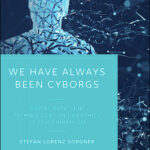 | Sorgner, Stefan Lorenz We Have Always Been Cyborgs Book Bristol University Press, 2021, ISBN: 978-1529219203. @book{Sorgner2021,
title = {We Have Always Been Cyborgs},
author = {Stefan Lorenz Sorgner},
url = {https://bristoluniversitypress.co.uk/we-have-always-been-cyborgs?fbclid=IwAR3m-KS4bLWWHqMKqgFfYPXH5C_YrYsZp4ZtWDVXaFJ53QIrbGYINOpj7PI},
isbn = {978-1529219203},
year = {2021},
date = {2021-11-04},
publisher = {Bristol University Press},
abstract = {The concept of transhumanism emerged in the middle of the 20th century, and has influenced discussions around AI, brain-computer interfaces, genetic technologies and life extension. Despite its enduring influence in the public imagination, a fully developed philosophy of transhumanism has not been presented yet.
In this new book, leading philosopher Stefan Lorenz Sorgner explores the critical issues that link transhumanism with digitalisation, gene technologies and ethics. He examines the history and meaning of transhumanism and asks bold questions about human perfection, cyborgs, genetically enhanced entities, and uploaded minds.
Offering insightful reflections on values, norms and utopia, this will be an important guide for readers interested in contemporary digital culture, gene ethics and policy making.},
keywords = {},
pubstate = {published},
tppubtype = {book}
}
The concept of transhumanism emerged in the middle of the 20th century, and has influenced discussions around AI, brain-computer interfaces, genetic technologies and life extension. Despite its enduring influence in the public imagination, a fully developed philosophy of transhumanism has not been presented yet.
In this new book, leading philosopher Stefan Lorenz Sorgner explores the critical issues that link transhumanism with digitalisation, gene technologies and ethics. He examines the history and meaning of transhumanism and asks bold questions about human perfection, cyborgs, genetically enhanced entities, and uploaded minds.
Offering insightful reflections on values, norms and utopia, this will be an important guide for readers interested in contemporary digital culture, gene ethics and policy making. |
 | Prisco, Giulio Futurist spaceflight meditations Book Independently published, 2021, ISBN: 979-8514323104. @book{Prisco2021,
title = {Futurist spaceflight meditations},
author = {Giulio Prisco},
url = {https://www.amazon.com/dp/B096LPPVSR/},
isbn = {979-8514323104},
year = {2021},
date = {2021-06-03},
publisher = {Independently published},
abstract = {We must strenuously push toward our cosmic destiny among the stars. Beginning to expand beyond the Earth before it’s too late is our most important task at this moment in history. Many actors have important roles to play, and there’s room for everyone. Spaceflight will also help find viable solutions for current developmental, environmental, and social problems.
But the road to the stars is full of impediments and roadblocks. We will not advance as fast as we wish. Therefore we must keep our mood strenuous and our drive strong. We need an optimistic spaceflight culture oriented to the future, with energizing visions of interplanetary, interstellar, and cosmic futures. We also need a futurist space philosophy.},
keywords = {},
pubstate = {published},
tppubtype = {book}
}
We must strenuously push toward our cosmic destiny among the stars. Beginning to expand beyond the Earth before it’s too late is our most important task at this moment in history. Many actors have important roles to play, and there’s room for everyone. Spaceflight will also help find viable solutions for current developmental, environmental, and social problems.
But the road to the stars is full of impediments and roadblocks. We will not advance as fast as we wish. Therefore we must keep our mood strenuous and our drive strong. We need an optimistic spaceflight culture oriented to the future, with energizing visions of interplanetary, interstellar, and cosmic futures. We also need a futurist space philosophy. |
 | Blackford, Russell At the Dawn of a Great Transition Book Schwabe Verlag Basel, 2021, ISBN: 978-3796541896. @book{Blackford2021,
title = {At the Dawn of a Great Transition},
author = {Russell Blackford},
url = {https://schwabe.ch/9783796541896/at-the-dawn-of-a-great-transition},
isbn = {978-3796541896},
year = {2021},
date = {2021-05-01},
publisher = {Schwabe Verlag Basel},
abstract = {Radical enhancement would employ technology to extend human capacities far beyond anything yet seen or experienced. Imagine, for example, easily outrunning any Olympic athlete while being dramatically smarter than Albert Einstein. Or imagine living for hundreds or thousands of years, making today’s super-centenarians seem like mayflies. Soon – perhaps some time this century – we may have the technology for this. But if we had it, should we use it? Radical enhancement might seem like a gift, but could it become, as its critics warn, a poisoned chalice for individuals and a curse for human societies? In this fascinating book, Russell Blackford examines the pros and cons, bringing good humour, philosophical insight, and historical perspective to this most modern of modern debates.},
keywords = {},
pubstate = {published},
tppubtype = {book}
}
Radical enhancement would employ technology to extend human capacities far beyond anything yet seen or experienced. Imagine, for example, easily outrunning any Olympic athlete while being dramatically smarter than Albert Einstein. Or imagine living for hundreds or thousands of years, making today’s super-centenarians seem like mayflies. Soon – perhaps some time this century – we may have the technology for this. But if we had it, should we use it? Radical enhancement might seem like a gift, but could it become, as its critics warn, a poisoned chalice for individuals and a curse for human societies? In this fascinating book, Russell Blackford examines the pros and cons, bringing good humour, philosophical insight, and historical perspective to this most modern of modern debates. |
 | Darling, Kate The New Breed Book Henry Holt and Co., 2021, ISBN: 9781250296115. @book{Darling2021,
title = {The New Breed},
author = {Kate Darling},
url = {https://us.macmillan.com/books/9781250296115},
isbn = {9781250296115},
year = {2021},
date = {2021-04-20},
publisher = {Henry Holt and Co.},
abstract = {There has been a lot of ink devoted to discussions of how robots will replace us and take our jobs. But MIT Media Lab researcher and technology policy expert Kate Darling argues just the opposite, and that treating robots with a bit of humanity, more like the way we treat animals, will actually serve us better. From a social, legal, and ethical perspective, she shows that our current ways of thinking don’t leave room for the robot technology that is soon to become part of our everyday routines. Robots are likely to supplement—rather than replace—our own skills and relationships. So if we consider our history of incorporating animals into our work, transportation, military, and even families, we actually have a solid basis for how to contend with this future.
A deeply original analysis of our technological future and the ethical dilemmas that await us, The New Breed explains how the treatment of machines can reveal a new understanding of our own history, our own systems and how we relate—not just to non-humans, but also to each other.},
keywords = {},
pubstate = {published},
tppubtype = {book}
}
There has been a lot of ink devoted to discussions of how robots will replace us and take our jobs. But MIT Media Lab researcher and technology policy expert Kate Darling argues just the opposite, and that treating robots with a bit of humanity, more like the way we treat animals, will actually serve us better. From a social, legal, and ethical perspective, she shows that our current ways of thinking don’t leave room for the robot technology that is soon to become part of our everyday routines. Robots are likely to supplement—rather than replace—our own skills and relationships. So if we consider our history of incorporating animals into our work, transportation, military, and even families, we actually have a solid basis for how to contend with this future.
A deeply original analysis of our technological future and the ethical dilemmas that await us, The New Breed explains how the treatment of machines can reveal a new understanding of our own history, our own systems and how we relate—not just to non-humans, but also to each other. |
 | Zerilli, John; Danaher, John; Maclaurin, James; Gavaghan, Colin; Knott, Alistair; Liddicoat, Joy; Noorman, Merel A Citizen's Guide to Artificial Intelligence Book MIT Press, 2021, ISBN: 9780262044813. @book{Zerilli2021,
title = {A Citizen's Guide to Artificial Intelligence},
author = { John Zerilli and John Danaher and James Maclaurin and Colin Gavaghan and Alistair Knott and Joy Liddicoat and Merel Noorman},
url = {https://mitpress.mit.edu/books/citizens-guide-artificial-intelligence},
isbn = {9780262044813},
year = {2021},
date = {2021-02-01},
publisher = {MIT Press},
abstract = {Artificial intelligence, or AI for short, has generated a staggering amount of hype in the past several years. Is it the game-changer it's been cracked up to be? If so, how is it changing the game? How is it likely to affect us as customers, tenants, aspiring homeowners, students, educators, patients, clients, prison inmates, members of ethnic and sexual minorities, and voters in liberal democracies? Authored by experts in fields ranging from computer science and law to philosophy and cognitive science, this book offers a concise overview of moral, political, legal and economic implications of AI. It covers the basics of AI's latest permutation, machine learning, and considers issues such as transparency, bias, liability, privacy, and regulation.
Both business and government have integrated algorithmic decision support systems into their daily operations, and the book explores the implications for our lives as citizens. For example, do we take it on faith that a machine knows best in approving a patient's health insurance claim or a defendant's request for bail? What is the potential for manipulation by targeted political ads? How can the processes behind these technically sophisticated tools ever be transparent? The book discusses such issues as statistical definitions of fairness, legal and moral responsibility, the role of humans in machine learning decision systems, “nudging” algorithms and anonymized data, the effect of automation on the workplace, and AI as both regulatory tool and target.},
keywords = {},
pubstate = {published},
tppubtype = {book}
}
Artificial intelligence, or AI for short, has generated a staggering amount of hype in the past several years. Is it the game-changer it's been cracked up to be? If so, how is it changing the game? How is it likely to affect us as customers, tenants, aspiring homeowners, students, educators, patients, clients, prison inmates, members of ethnic and sexual minorities, and voters in liberal democracies? Authored by experts in fields ranging from computer science and law to philosophy and cognitive science, this book offers a concise overview of moral, political, legal and economic implications of AI. It covers the basics of AI's latest permutation, machine learning, and considers issues such as transparency, bias, liability, privacy, and regulation.
Both business and government have integrated algorithmic decision support systems into their daily operations, and the book explores the implications for our lives as citizens. For example, do we take it on faith that a machine knows best in approving a patient's health insurance claim or a defendant's request for bail? What is the potential for manipulation by targeted political ads? How can the processes behind these technically sophisticated tools ever be transparent? The book discusses such issues as statistical definitions of fairness, legal and moral responsibility, the role of humans in machine learning decision systems, “nudging” algorithms and anonymized data, the effect of automation on the workplace, and AI as both regulatory tool and target. |
2020
|
 | Sorgner, Stefan Lorenz On Transhumanism Book Penn State University Press, 2020, ISBN: 978-0-271-08792-4. @book{Sorgner2020b,
title = {On Transhumanism},
author = {Stefan Lorenz Sorgner},
url = {https://www.psupress.org/books/titles/978-0-271-08792-4.html},
isbn = {978-0-271-08792-4},
year = {2020},
date = {2020-12-15},
publisher = {Penn State University Press},
abstract = {On Transhumanism is a vital primer on the subject, written by a world-renowned expert. In this book, Sorgner presents an overview of the movement’s history, capably summarizing the twelve pillars of transhumanist discourse and explaining the great diversity of transhumanist responses to each individual topic. He highlights the urgent ethical challenges related to the latest technological developments, inventions, and innovations and compares the unique cultural standing of transhumanism to other cultural movements, placing it within the broader context of the Enlightenment, modernity, postmodernity, and the philosophical writings of Nietzsche.},
keywords = {},
pubstate = {published},
tppubtype = {book}
}
On Transhumanism is a vital primer on the subject, written by a world-renowned expert. In this book, Sorgner presents an overview of the movement’s history, capably summarizing the twelve pillars of transhumanist discourse and explaining the great diversity of transhumanist responses to each individual topic. He highlights the urgent ethical challenges related to the latest technological developments, inventions, and innovations and compares the unique cultural standing of transhumanism to other cultural movements, placing it within the broader context of the Enlightenment, modernity, postmodernity, and the philosophical writings of Nietzsche. |
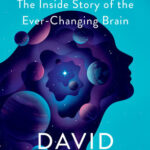 | Eagleman, David Livewired: The Inside Story of the Ever-Changing Brain Book Pantheon, 2020, ISBN: 978-0307907493. @book{Eagleman2020,
title = {Livewired: The Inside Story of the Ever-Changing Brain},
author = {David Eagleman},
url = {https://www.amazon.com/Livewired-Inside-Story-Ever-Changing-Brain/dp/030790749X/},
isbn = {978-0307907493},
year = {2020},
date = {2020-08-30},
publisher = {Pantheon},
abstract = {In Livewired, you will surf the leading edge of neuroscience atop the anecdotes and metaphors that have made David Eagleman one of the best scientific translators of our generation. Covering decades of research to the present day, Livewired also presents new discoveries from Eagleman’s own laboratory, from synesthesia to dreaming to wearable neurotech devices that revolutionize how we think about the senses.},
keywords = {},
pubstate = {published},
tppubtype = {book}
}
In Livewired, you will surf the leading edge of neuroscience atop the anecdotes and metaphors that have made David Eagleman one of the best scientific translators of our generation. Covering decades of research to the present day, Livewired also presents new discoveries from Eagleman’s own laboratory, from synesthesia to dreaming to wearable neurotech devices that revolutionize how we think about the senses. |
2019
|
 | Danaher, John Automation and Utopia: Human Flourishing in a World Without Work Book Harvard University Press, 2019, ISBN: 978-0674984240. @book{Danaher2019,
title = {Automation and Utopia: Human Flourishing in a World Without Work},
author = {John Danaher},
url = {https://www.amazon.it/Automation-Utopia-Human-Flourishing-Without/dp/0674984242/ref=sr_1_5?__mk_it_IT=%C3%85M%C3%85%C5%BD%C3%95%C3%91&dchild=1&keywords=john+danaher&qid=1604935575&sr=8-5},
isbn = {978-0674984240},
year = {2019},
date = {2019-10-28},
publisher = {Harvard University Press},
abstract = {Human obsolescence is imminent. The factories of the future will be dark, staffed by armies of tireless robots. The hospitals of the future will have fewer doctors, depending instead on cloud-based AI to diagnose patients and recommend treatments. The homes of the future will anticipate our wants and needs and provide all the entertainment, food, and distraction we could ever desire.},
keywords = {},
pubstate = {published},
tppubtype = {book}
}
Human obsolescence is imminent. The factories of the future will be dark, staffed by armies of tireless robots. The hospitals of the future will have fewer doctors, depending instead on cloud-based AI to diagnose patients and recommend treatments. The homes of the future will anticipate our wants and needs and provide all the entertainment, food, and distraction we could ever desire. |
 | Wood, David Sustainable Superabundance: A Universal Transhumanist Invitation Book Delta Wisdom, 2019, ISBN: 978-0995494237. @book{Wood2019b,
title = {Sustainable Superabundance: A Universal Transhumanist Invitation},
author = {David Wood},
url = {https://www.amazon.com/Sustainable-Superabundance-Transhumanist-Invitation-Transpolitica-ebook/dp/B07MVPW88D},
isbn = {978-0995494237},
year = {2019},
date = {2019-01-15},
publisher = {Delta Wisdom},
abstract = {Beyond the fear and chaos of contemporary life, there is good news to share.
A new era is at hand: the era of sustainable superabundance. In this era, the positive potential of humanity can develop in truly profound ways.},
keywords = {},
pubstate = {published},
tppubtype = {book}
}
Beyond the fear and chaos of contemporary life, there is good news to share.
A new era is at hand: the era of sustainable superabundance. In this era, the positive potential of humanity can develop in truly profound ways. |
2017
|
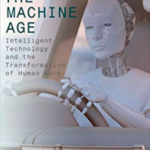 | Kevin LaGrandeur, James Hughes Surviving the Machine Age: Intelligent Technology and the Transformation of Human Work Book Palgrave Macmillan, 2017, ISBN: 978-3319511641. @book{LaGrandeur2017,
title = {Surviving the Machine Age: Intelligent Technology and the Transformation of Human Work},
author = {Kevin LaGrandeur, James Hughes},
url = {https://www.amazon.com/Surviving-Machine-Age-Intelligent-Transformation/dp/3319511645},
isbn = {978-3319511641},
year = {2017},
date = {2017-05-02},
publisher = {Palgrave Macmillan},
abstract = {This book examines the current state of the technologically-caused unemployed, and attempts to answer the question of how to proceed into an era beyond technological unemployment. Beginning with an overview of the most salient issues, the experts collected in this work present their own novel visions of the future and offer suggestions for adapting to a more symbiotic economic relationship with AI. These suggestions include different modes of dealing with education, aging workers, government policies, and the machines themselves. Ultimately, they lay out a whole new approach to economics, one in which we learn to merge with and adapt to our increasingly intelligent creations. },
keywords = {},
pubstate = {published},
tppubtype = {book}
}
This book examines the current state of the technologically-caused unemployed, and attempts to answer the question of how to proceed into an era beyond technological unemployment. Beginning with an overview of the most salient issues, the experts collected in this work present their own novel visions of the future and offer suggestions for adapting to a more symbiotic economic relationship with AI. These suggestions include different modes of dealing with education, aging workers, government policies, and the machines themselves. Ultimately, they lay out a whole new approach to economics, one in which we learn to merge with and adapt to our increasingly intelligent creations. |
2013
|
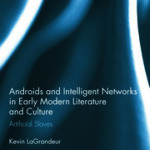 | LaGrandeur, Kevin Androids and Intelligent Networks in Early Modern Literature and Culture: Artificial Slaves Book Routledge, 2013, ISBN: 9780415631211. @book{LaGrandeur2013,
title = {Androids and Intelligent Networks in Early Modern Literature and Culture: Artificial Slaves},
author = {Kevin LaGrandeur},
url = {https://www.routledge.com/Androids-and-Intelligent-Networks-in-Early-Modern-Literature-and-Culture/LaGrandeur/p/book/9780415631211},
isbn = {9780415631211},
year = {2013},
date = {2013-02-05},
publisher = {Routledge},
abstract = {Awarded a 2014 Science Fiction and Technoculture Studies Prize Honourable Mention.
This book explores the creation and use of artificially made humanoid servants and servant networks by fictional and non-fictional scientists of the early modern period. Beginning with an investigation of the roots of artificial servants, humanoids, and automata from earlier times, LaGrandeur traces how these literary representations coincide with a surging interest in automata and experimentation, and how they blend with the magical science that preceded the empirical era. In the instances that this book considers, the idea of the artificial factotum is connected with an emotional paradox: the joy of self-enhancement is counterpoised with the anxiety of self-displacement that comes with distribution of agency.In this way, the older accounts of creating artificial slaves are accounts of modernity in the making—a modernity characterized by the project of extending the self and its powers, in which the vision of the extended self is fundamentally inseparable from the vision of an attenuated self. This book discusses the idea that fictional, artificial servants embody at once the ambitions of the scientific wizards who make them and society’s perception of the dangers of those ambitions, and represent the cultural fears triggered by independent, experimental thinkers—the type of thinkers from whom our modern cyberneticists descend.},
keywords = {},
pubstate = {published},
tppubtype = {book}
}
Awarded a 2014 Science Fiction and Technoculture Studies Prize Honourable Mention.
This book explores the creation and use of artificially made humanoid servants and servant networks by fictional and non-fictional scientists of the early modern period. Beginning with an investigation of the roots of artificial servants, humanoids, and automata from earlier times, LaGrandeur traces how these literary representations coincide with a surging interest in automata and experimentation, and how they blend with the magical science that preceded the empirical era. In the instances that this book considers, the idea of the artificial factotum is connected with an emotional paradox: the joy of self-enhancement is counterpoised with the anxiety of self-displacement that comes with distribution of agency.In this way, the older accounts of creating artificial slaves are accounts of modernity in the making—a modernity characterized by the project of extending the self and its powers, in which the vision of the extended self is fundamentally inseparable from the vision of an attenuated self. This book discusses the idea that fictional, artificial servants embody at once the ambitions of the scientific wizards who make them and society’s perception of the dangers of those ambitions, and represent the cultural fears triggered by independent, experimental thinkers—the type of thinkers from whom our modern cyberneticists descend. |
2004
|
 | Hughes, James Citizen Cyborg Book Basic Books, 2004, ISBN: 978-0813341989. @book{Hughes2004,
title = {Citizen Cyborg},
author = {James Hughes},
url = {https://www.amazon.it/Citizen-Cyborg-Democratic-Societies-Redesigned/dp/0813341981},
isbn = {978-0813341989},
year = {2004},
date = {2004-10-27},
publisher = {Basic Books},
abstract = {A provocative work by medical ethicist James Hughes, Citizen Cyborg argues that technologies pushing the boundaries of humanness can radically improve our quality of life if they are controlled democratically. Hughes challenges both the technophobia of Leon Kass and Francis Fukuyama and the unchecked enthusiasm of others for limitless human enhancement. He argues instead for a third way, "democratic transhumanism," by asking the question destined to become a fundamental issue of the twenty-first century: How can we use new cybernetic and biomedical technologies to make life better for everyone? These technologies hold great promise, but they also pose profound challenges to our health, our culture, and our liberal democratic political system. By allowing humans to become more than human - "posthuman" or "transhuman" - the new technologies will require new answers for the enduring issues of liberty and the common good. What limits should we place on the freedom of people to control their own bodies? Who should own genes and other living things? Which technologies should be mandatory, which voluntary, and which forbidden? For answers to these challenges, Citizen Cyborg proposes a radical return to a faith in the resilience of our democratic institutions.},
keywords = {},
pubstate = {published},
tppubtype = {book}
}
A provocative work by medical ethicist James Hughes, Citizen Cyborg argues that technologies pushing the boundaries of humanness can radically improve our quality of life if they are controlled democratically. Hughes challenges both the technophobia of Leon Kass and Francis Fukuyama and the unchecked enthusiasm of others for limitless human enhancement. He argues instead for a third way, "democratic transhumanism," by asking the question destined to become a fundamental issue of the twenty-first century: How can we use new cybernetic and biomedical technologies to make life better for everyone? These technologies hold great promise, but they also pose profound challenges to our health, our culture, and our liberal democratic political system. By allowing humans to become more than human - "posthuman" or "transhuman" - the new technologies will require new answers for the enduring issues of liberty and the common good. What limits should we place on the freedom of people to control their own bodies? Who should own genes and other living things? Which technologies should be mandatory, which voluntary, and which forbidden? For answers to these challenges, Citizen Cyborg proposes a radical return to a faith in the resilience of our democratic institutions. |
















